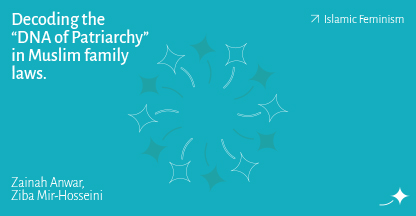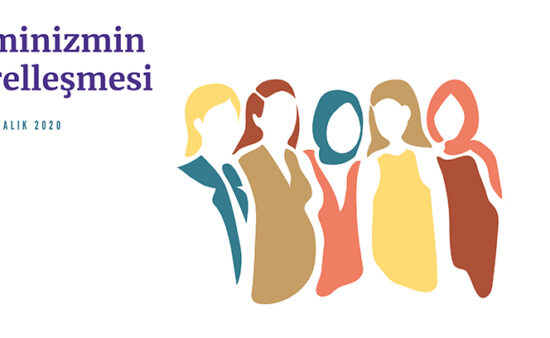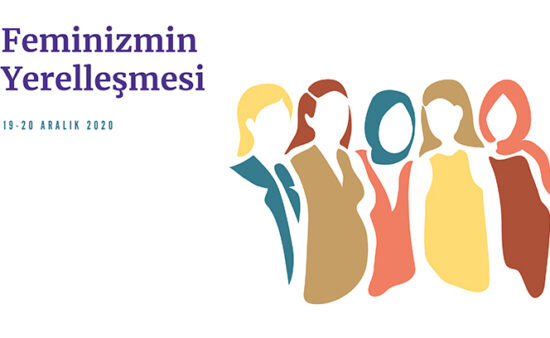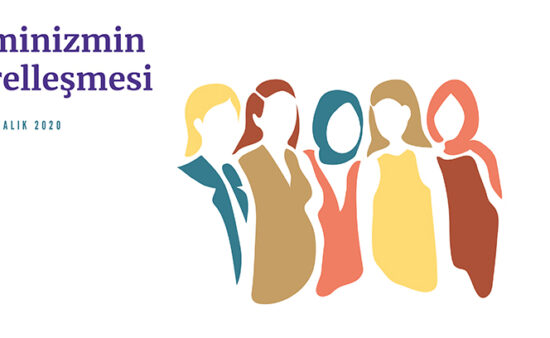Contemporary Muslim family laws and practices are increasingly under attack for their unjust treatment of women. At the heart of unequal gender rights in Muslim laws lie the twin concepts of qiwamah and wilayah, which are commonly understood as having mandated men’s authority over women, and as justifying and institutionalising a patriarchal model of the family. The Qur’anic verse (4: 34) from which the concept of qiwamah is derived reads (in a new translation by Kecia Ali):
Men are qawwamun [protectors/maintainers] in relation to women,
according to what God has favored some over
others and according to what they spend from
their wealth. Righteous women are qanitat [obedient]
guarding the unseen according to what God
has guarded. Those [women] whose nushuz [disobedience]
you fear, admonish them, and abandon them in
bed, and strike them. If they obey you, do not
pursue a strategy against them. Indeed, God is
Exalted, Great.
We have added translations to the three highlighted words; Ali does not translate them, pointing out that any translation is an interpretation in itself.
It is no exaggeration to say that the entire edifice of family law in Muslim legal tradition is built on the ways in which classical jurists understood this verse and translated it into legal rulings. To define conjugal relations, and notions of gender justice and equity, they used the three terms highlighted above, focusing on the first part of the verse and the notion that men are women’s qawwamun, protectors and maintainers.
Yet this is the only appearance in the Qur’an of the word qawwamun. The abstract term qiwamah ( protection, maintenance) based on it does not appear at all. In relation to marriage and relations between spouses, two other terms appear over twenty times: ma‘ruf (good way, decent) and rahmah wa muwadah, (compassion and love). Why did the jurists choose not to translate these two terms into legal rulings? The closely related term wilayah does occur in the Qur’an, in the sense of friendship and mutual support, but never as endorsing male authority over women, which is the interpretation of the term enshrined, alongside qiwamah, in juristic rulings on marriage.
Why and how did verse 4:34, and not other verses in the Qur’an, become the foundation for the legal construction of marriage? Why are qiwamah and wilayah still the basis of gender relations in the imagination of modern-day jurists and Muslims who resist and denounce equality in marriage as alien to Islam? How can we Muslim women rethink and reconstruct the concepts in ways that reflect our own notions of justice? Can Shari‘ah-based laws accommodate gender equality?
Musawah’s mission
These questions, central to the ongoing struggle for an egalitarian construction of Muslim family laws, are the focus of a new project undertaken by Musawah, a global movement for equality and justice in the Muslim family. Musawah (‘equality’ in Arabic) was initiated in 2007 by the pioneering Malaysian women’s group, Sisters in Islam, and was launched in Kuala Lumpur in February 2009.
This project, initiated in 2010, has three related components: the production of new feminist knowledge that critically engages with classical jurists’ interpretations of qiwamah and wilayah, a Global Life Stories Project to document the life stories of selected women and men in 11 countries, focusing on how qiwamah and wilayah are experienced, understood, and contested in their lived realities, and the use of quantitative and qualitative data to show the disconnect between law and the socio-economic realities of Muslim women today.
In critically engaging with the tradition in Islamic legal thought, we hope to understand the construction of male authority by Muslim jurists, as manifested in family law, and as embodied in the concepts of qiwamah and wilayah. We intend to argue that qiwamah and wilayah as sanctions for male authority over women are not Qur’anic concepts but juristic constructs, and that laws based on these constructs no longer reflect the justice of Islam. Our intention is to promote other interpretations that are both possible and more in tune with contemporary lived realities.
This rethinking is framed in two related contexts. The first context is that of the current encounters between two systems of values and two modes of knowledge production. The first mode is rooted in pre-modern conceptions of justice, gender and rights, which allow discrimination among individuals on the basis of faith, status and gender as found in classical fiqh rulings. The second mode is shaped by the ideals of universal human rights, equality and personal freedom, as found and advocated in international human rights documents such as CEDAW (Convention on the Elimination of All Forms of Discrimination Against Women). The second context is that of 20th-century shifts, both globally and locally, in the politics of religion, law and gender, and the changed relationship between Muslim legal tradition, state and social practice in Muslim contexts.
The Musawah approach takes a critical feminist perspective, but most importantly it also works within the tradition of Islamic legal thought, by invoking two of its main distinctions. The first distinction is between Shari‘ah as revelation, and fiqh – the science of Islamic jurisprudence. This distinction underlies the emergence of various schools of Islamic law and within them a multiplicity of positions and opinions. In Muslim belief, Shari‘ah, literally ‘the way’, is God’s will as revealed to the Prophet Muhammad. Fiqh, jurisprudence, literally ‘understanding’, is the process of human endeavour to discern (formulate) and extract legal rules from the sacred sources of Islam: that is, the Qur’an and the Sunnah (the practice of the Prophet, as contained in Hadith, Traditions). In other words, while the Shari‘ah is sacred, eternal and universal, fiqh is human and – like any other system of jurisprudence – mundane, temporal and local.
The second distinction, also based on Islamic legal tradition, is that made between the two main categories of legal rulings (ahkam): between ‘ibadat (ritual/spiritual acts) and mu‘amalat (social/contractual acts). Rulings in the first category, ‘ibadat, regulate relations between God and the believer, where jurists contend there is limited scope for rationalization, explanation and change, since they pertain to worship and the spiritual realm. This is not the case with mu‘amalat, which regulate social relations and remain open to rational considerations and social influences, and to which most rulings concerning women and gender relations belong.
Musawah argues that, for classical jurists, the validity and inviolability of men’s superiority and authority over women was a given, a ‘qiwamah postulate’ based on their understanding of Qur’an verse 4: 34. Following Carol Gilligan, who identified the “gender binary and hierarchy as the DNA of patriarchy”, we suggest that this qiwamah postulate has been the DNA of patriarchy in Muslim legal tradition.
We see the workings of this postulate in all areas of Muslim law relating to gender rights, but its impact is most evident in the laws that the jurists devised for the regulation of marriage. They defined marriage as a contract, patterned after the contract of sale. The contract makes sexual relations between a man and woman lawful, and establishes a set of default rights and obligations for each party, some supported by legal force, others by moral sanction. Those with legal force concern sexual access and compensation and are embodied in two legal concepts: tamkin and nafaqah. Tamkin – obedience or submission – specifically sexual access, is the husband’s right and thus the wife’s duty; whereas nafaqah – maintenance, provision of shelter, food and clothing- is the wife’s right and the husband’s duty. The wife loses her claim to maintenance if she is in a state of nushuz (disobedience). The husband has the unilateral and extra-judicial right to terminate the contract by talaq (repudiation); a wife cannot terminate the contract without her husband’s consent, or the permission of the judge if she produces a valid reason. There are numerous moral injunctions that could have limited men’s power to terminate marriage; for instance, there are sayings from the Prophet to the effect that talaq is among the most detested of permitted acts, and that when a man pronounces it, God’s throne shakes. Yet classical jurists made no attempt to restrict a man’s right to talaq. He needs neither a reason nor his wife’s consent.
There were, of course, differences between and within the classical schools of law over what constituted and what defined the three interrelated concepts – nafaqah, tamkin and nushuz – but they all shared the same conception of marriage, and the vast majority linked a woman’s right to maintenance to her obedience to her husband. Whether these rulings corresponded to actual marriage practices and gender relations is another area of inquiry, one that recent scholarship in Islam has started to uncover.
The qiwamah postulate justified other legal inequalities, such as men’s right to polygamy. In addition, because men provide for their wives, justice requires that men be entitled to greater shares in inheritance. Similarly, since women are under their husbands’ authority, they cannot occupy positions that entail the exercise of authority in the family, such as guardians of the children, or in society, such as judges or political leaders. These inequalities in rights were further rationalized and justified by other arguments, based on assumptions about innate, natural differences between the sexes: women are deemed to be weaker and more emotional by nature, qualities inappropriate in a leader; they are created for child-bearing, a function that confines them to the home, which means that men must protect and provide for them.
New questions
In this and other projects, Musawah’s objective is to insert women’s concerns and voices into the production of religious knowledge and legal reform in Muslim contexts. We do this by linking scholarship with activism and by bridging two gaps in the Muslim family law debates and in Muslim legal tradition. First, a majority of Muslim religious scholars are gender blind (gender biased and misogynist is probably more correct); they are ignorant of feminist theories (some genuinely and others more willfully) and unaware of the importance of gender as a category of thought. Secondly, many women’s rights activists and campaigners in Muslim contexts, in line with mainstream feminism, have long considered working within a religious framework to be counter-productive; they want to work only within a human rights framework, and avoid any religion-based arguments. But they tend to overlook how feminism’s epistemological heritage can be put to use. We examine how we know what we know about women in all branches of knowledge, including religious knowledge. This not only sheds light on laws and practices that take their legitimacy from religion but also enables a challenge, from within, to the patriarchy that is institutionalised in Muslim legal tradition.
Applying the insights of feminist theory and gender studies to Islamic studies also enables us to ask new questions. For example, the maqasidi approach – i.e. going beyond legal rulings and focusing on the objectives and spirit of the Shari‘ah – has captured the imagination of many reformist Muslim thinkers; what does it have to offer to those seeking gender equality? Does the concept of qiwamah have positive elements that should be retained? What does protection mean, where does hierarchy come in, how does control fit in, how can care come in? Should the link affirmed by classical jurists between maintenance and obedience be redefined or broken? What kind of family do Shari‘ah-based laws aim to protect? What do equality and justice mean for women and the family?
The search for answers to these questions takes us to realms outside the Muslim legal tradition, to human rights law, feminist legal theory, experiences of family law reform in other legal traditions, and the lived realities of today when so many women are providers and protectors of their families. This journey helps us to reveal the intimate links between patriarchy and sexuality and to separate patriarchy from Islam’s sacred texts. Ideological dichotomies such as ‘secular’ versus ‘religious’ feminism, or ‘Islam’ versus ‘human rights’ are both misleading and arbitrary; yet they are commonly invoked to mask the real battleground, which is that between despotic and democratic forces, to which Muslim women’s struggle for equality and dignity remains a hostage.
 HAVLE KADIN
HAVLE KADIN



